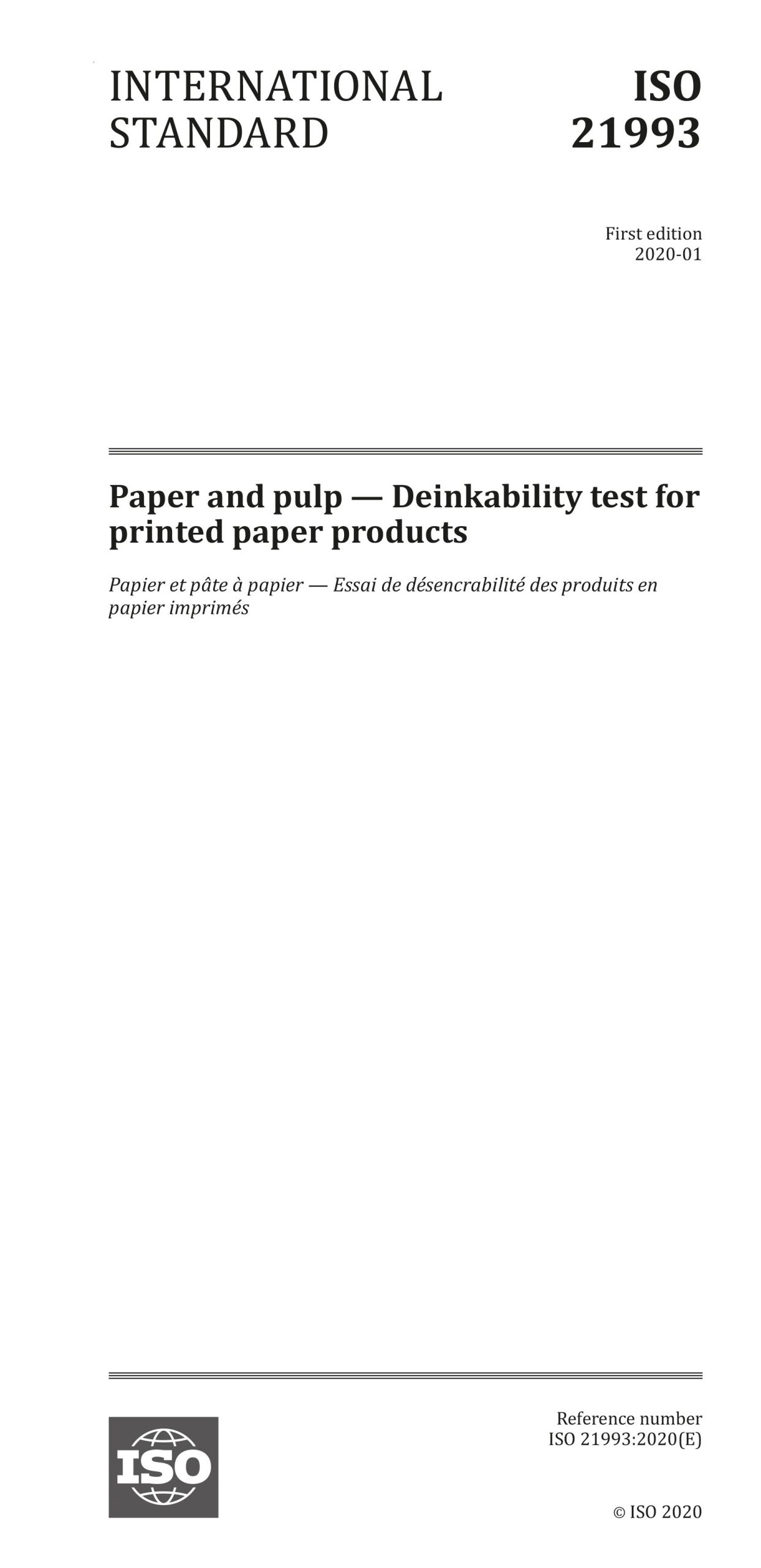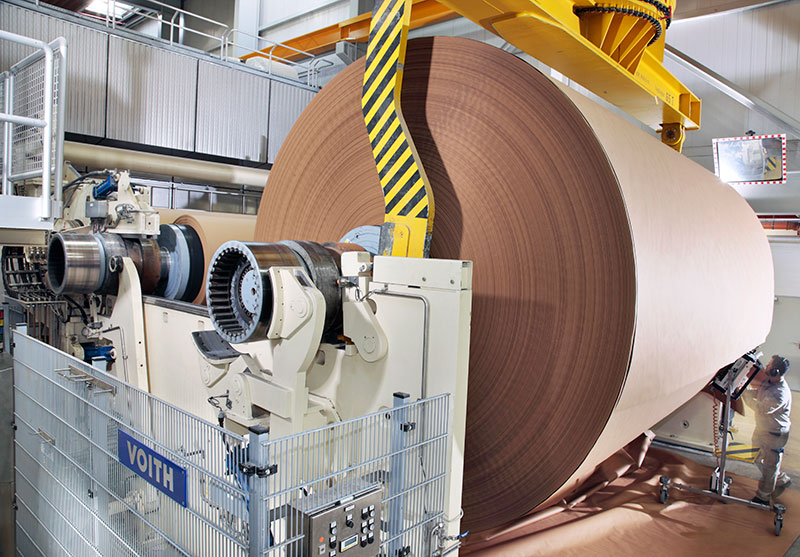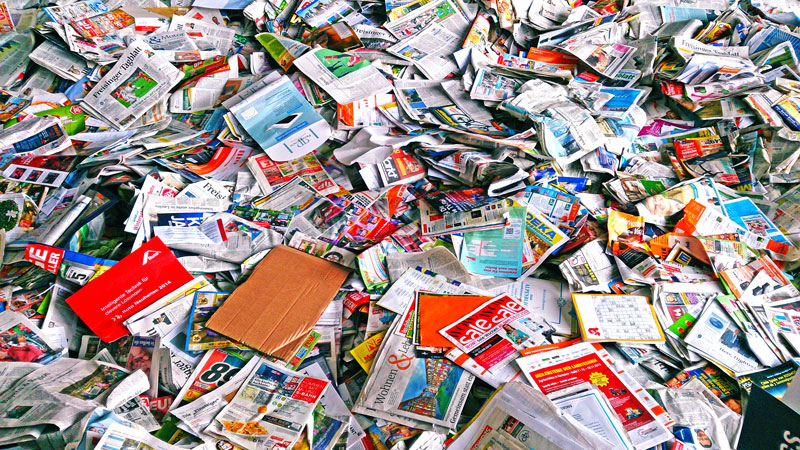INGEDE News
March 2020
- Calendar of Events
- Is toilet paper the new gold?
- Creating additional value by print finishing: KURZ is new INGEDE Partner
- ISO 21993 approved: Paper and pulp – Deinkability test for printed paper products
- EPRC, BIR, bvse remind: Collection and recycling of used paper more important than ever in times of health crisis
- More efficiency, less energy: Varel modernises paper machine 4
- SUBSCRIBE to our monthly newsletter!
Toilet paper, the new gold?
Essity Ortmann delivers up to 6,000 pallets per day
Toilet paper does not protect you against the corona virus. Still, the Covid-19 pandemic has strongly shaken consumers and led to stockpiling of goods, with toilet paper being the most wanted object of desire. But no need to hoard, a shortage of supply is most unlikely. On the contrary, time will come when everybody’s basement is full …
Psychologists have multiple ways to explain the reasons why crazy customers empty the shelves – they call the hoarding ritual in times of crisis natural, leading to frustration and even more desire at those who have to leave empty handed. Meanwhile thugs try to sell single rolls at excessive prices via online platforms, even gas stations offer single rolls in plastic bags for the needy.
But not only at Essity in Ortmann (Austria), toilet paper production is running on a record-high level. Every day, the mill produces several million rolls of toilet paper. Delivery to the trade has been increased to seven days per week. “This way we can guarantee to secure the basic supply with toilet paper for everybody”, a press release states.
„Currently our record delivery is at about 6,000 pallets at one day“, Andreas Greiner reports, Mill Manager Essity in Ortmann. „I have to thank the whole staff, every employee, who made the non-stop supply possible and continues toi guarantee it. Without them it would not be possible.“
Production around the clock
As in every paper mill, production runs around the clock. Andreas Greiner: „In parallel, we have secured our raw material supply for the next weeks and months and looked into sufficient transport capacity. No stockpiling necessary!
At least in German discount stores, the situation in the meantime has relaxed: Now photos of piles of toilet paper in front of discount stores, waiting to be filled into the shelves, flood the internet. Some supermarkets just leave the pallets right at the entrance.
Better and better: Recycling toilet paper
Toilet paper from recycled paper should be the preferred prodct – environmental organisations advise not to worry about the historical image of recycled paper: Today’s toilet paper has nothing in common with the scratchy, grey paper of school and rest area toilets one might remember. The Blue Angel ecolabel guarantees, that the paper is fully made from recycled paper.
Wet-strength papers do not disintegrate, so no kitchen paper towels or baby wipes into the loo!
The sewage authorities already warn, kitchen towel endanger the weastewater network!
Because toilet paper had been out of stock due to panic buying, some people went for kitchen towels and other paper products instead. The German sewage treatment association urged people to protect their wastewater pipes by using garbage bages for other material than toilet paper. “Baby wipes are the worst, because they clog up pipes and pumps.”
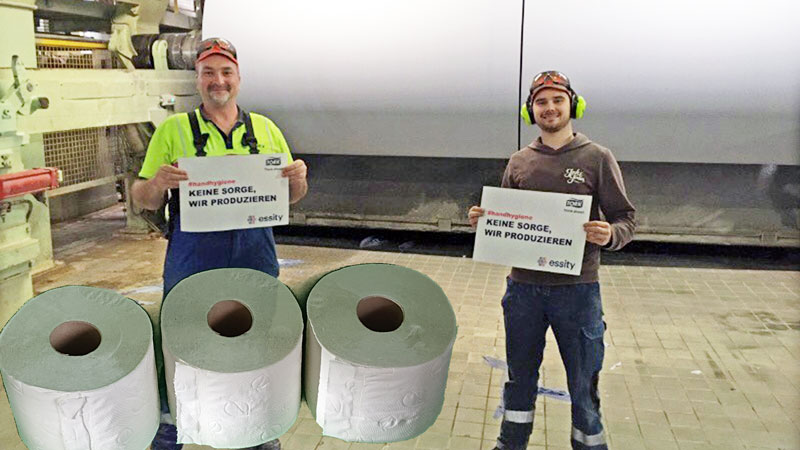
“Don’t worry, we’re producing”: Essity staff in Kostheim
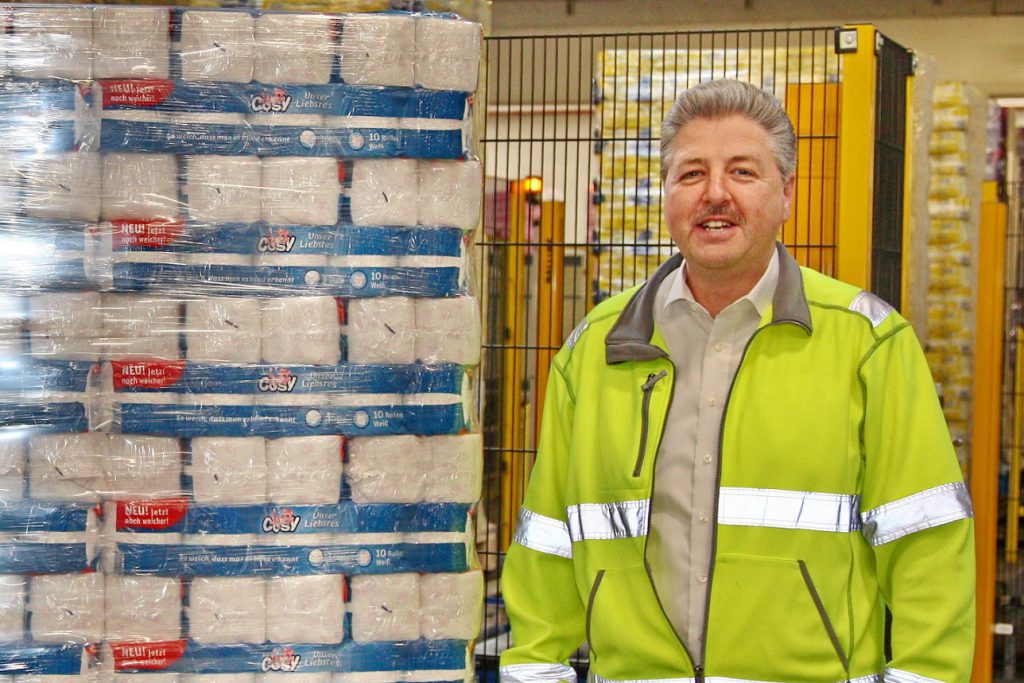
Andreas Greiner, Mill manager of Essity in Ortmann
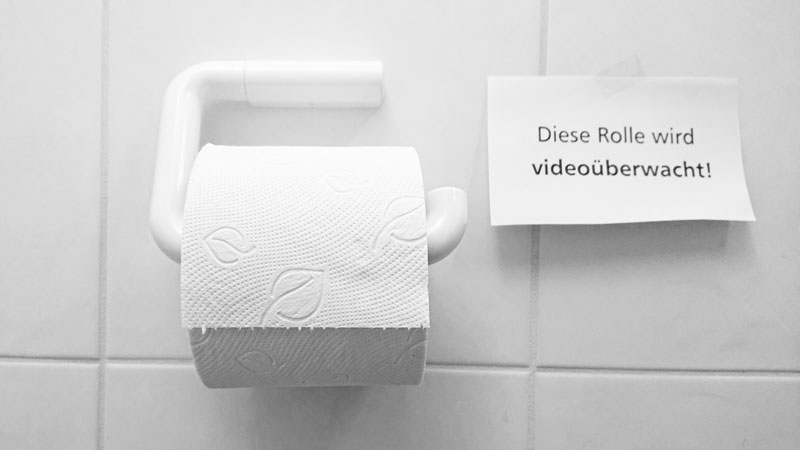
“This roll is under video surveillance” – the internet is full of jokes about supply problems, which increases the run for hygiene papers even more
A forklift driver demonstrates that at least he does not worry about the toilet paper supply: “Meanwhile at the toilet paper warehouse”
Only with a garbage can next to the loo: “Italian Grandpa’s Solution to the Toilet Paper Shortage”
ISO 21993 approved: Paper and pulp –
Deinkability test for printed paper products
The publication of INGEDE’s methodology for deinkability testing as ISO 21993 is an important milestone for INGEDE’s activities. The International Standard is based on INGEDE Method 11 and includes the auxiliary documents INGEDE Methods 1 & 2 for preparing and measuring the laboratory samples. With this document, deinkability testing according to INGEDE’s concept has achieves worldwide legitimacy and relevance!
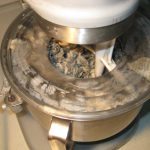 A limitation to certain brands is not allowed in standards. Strict definitions of specific equipment and settings like the Hobart pulper in INGEDE Method 11 had to be replaced by a general description and the definition of the energy input for repulping. Similar changes had to be made for the filter paper and the image analysis system. We had to make sure not to trigger any technical changes in INGEDE Method 11 because it is relevant for deinkability assessment to obtain the ecolabels for printed matter in Europe.
A limitation to certain brands is not allowed in standards. Strict definitions of specific equipment and settings like the Hobart pulper in INGEDE Method 11 had to be replaced by a general description and the definition of the energy input for repulping. Similar changes had to be made for the filter paper and the image analysis system. We had to make sure not to trigger any technical changes in INGEDE Method 11 because it is relevant for deinkability assessment to obtain the ecolabels for printed matter in Europe.
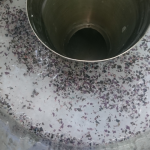 In 2016, INGEDE started to combine the three methods as DIN SPEC 55700 in English language, a document structured as a standard and using the proper terminology. This preparatory work paid off since the technical transfer to an ISO document took just over two years. However, a lot of details meant more work than expected.
In 2016, INGEDE started to combine the three methods as DIN SPEC 55700 in English language, a document structured as a standard and using the proper terminology. This preparatory work paid off since the technical transfer to an ISO document took just over two years. However, a lot of details meant more work than expected.
These types of discussions were typical for the year 2019, where we had to arrange four meetings, one of it being a two-day physical meeting in Berlin. However, about nine months later than originally planned, the document passed the final ballot and was officially published in January 2020. Many thanks to the colleagues who contributed to this unexpectedly tough work!
Since the standardisation bodies hold the copyright, ISO 21993 has to be purchased through their web shops. It is available in English and in French language.
Andreas Faul
Like other standards, DIN ISO 21993 is available at Beuth Verlag.
Sustainable print finishing:
KURZ is new INGEDE Partner
LEONHARD KURZ Stiftung & Co. KG and INGEDE plan more joint testing
After several sucessful tests about the deinkability of hot and cold foil print products, INGEDE is pleased to welcome the KURZ group to become INGEDE’s latest partner company. “We are very happy about this step”, INGEDE’s General Manager Andreas Faul says, “and we look forward to more joint testing activities”.
 The KURZ Group is a global leader in thin film technology. KURZ develops and manufactures decorative and functional layers applied to carrier foil for a wide range of industries, from the packaging and printing industry through to the automotive, electronics, card and textile sectors.
The KURZ Group is a global leader in thin film technology. KURZ develops and manufactures decorative and functional layers applied to carrier foil for a wide range of industries, from the packaging and printing industry through to the automotive, electronics, card and textile sectors.
KURZ offers a comprehensive portfolio of products for surface finishing, decoration, labeling, and counterfeit protection, rounded off by an extensive range of stamping machines and stamping tools. The company is also continuously investing in new technologies and developing innovative solutions for integrating functionality into surfaces. The KURZ Group has more than 5,500 employees at over 30 sites worldwide and produces under standardized quality and environmental standards in Europe, Asia, and the USA. A global network of subsidiaries, representatives and sales offices ensures short paths and individual, on-site consulting.
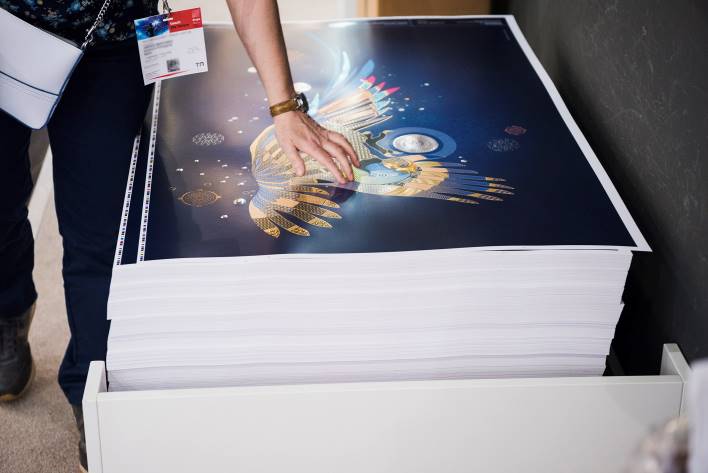
Unique finishing effects at the Kurz drupa booth in 2016 – to be continued at drupa 2021.
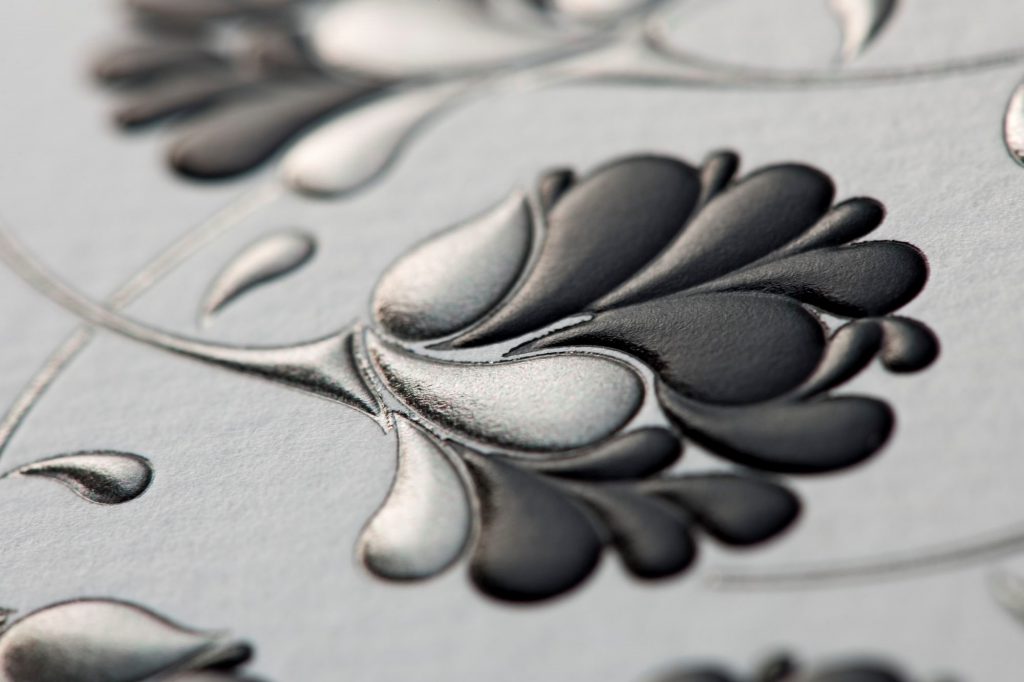
Hot foil stamping can create the most artistic effects
(Picture: LEONHARD KURZ Stiftung & Co. KG)
More efficiency, less energy:
PKV modernises paper machine 4
As part of its strategic programme, PKV has modernised and renewed an important part of its paper machine 4 in February. This rebuild was the largest project of Papier- und Kartonfabrik Varel (PKV) in 2020: engineers have been planning for more than two and a half years. The wire and press section of paper machine 4, and thus about one third of the entire plant, has been replaced. For the rebuild, the machine was shut down for more than a month.
The wire and press section is the part of the machine in which a mixture of recovered paper fibers and water is combined to form a firm web and dewatered by high pressure. The better this dewatering works, the less energy (in the form of steam) the machine needs in the subsequent drying section to further dry the paper. An essential goal of the rebuild is therefore a more efficient drying in the press section, for which PKV uses completely new machine parts. In the end, less energy is consumed.
EPRC: Collection and recycling of used paper more important than ever in times of health crisis
The Covid-19 sanitary crisis is unprecedented. The industry associations supporting the European Paper Recycling Council (EPRC) are saddened to see that so many people have lost their lives due to the pandemic. The lockdown measures taken to slow down contamination are deeply impacting our lives as well as business operations.
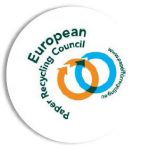 The paper value chain committed to keep its operations to deliver all essential paper products, such as hygiene products, packaging for food or pharmaceuticals while taking all necessary measures to protect workers, suppliers and customers.
The paper value chain committed to keep its operations to deliver all essential paper products, such as hygiene products, packaging for food or pharmaceuticals while taking all necessary measures to protect workers, suppliers and customers.
The EPRC asks all authorities to enable crucial industries such as paper to continue production and to facilitate transport and cross border shipments for the supply of these goods. “In these critical times, it is more than ever important to keep the supply for our industry running, in order to secure packaging for essential products” said Angelika Christ, chairwoman of the EPRC.
The new circular economy action plan recently published by the European Commission recognizes separate collection as a prerequisite for the circular economy. With a recycling rate of 71,9% and even 84,6% in packaging, the paper and board value chain depends on paper for recycling.
Separate collection of paper for recycling from households and supermarkets, but also its sorting and transport to paper mills are an essential part of this supply chain.
Recently, individual cities in some Member States have announced they might have to reduce separate collections or close sorting centers due to the current crisis.
People’s health must be the first priority along with supplying our society with essential goods for everyday life.
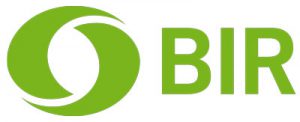 BIR calls on governments to recognize recycling industries as essential activities
BIR calls on governments to recognize recycling industries as essential activities
Collecting, sorting and recycling wastes from households and industrial sources, are essential businesses as they serve to protect human health and the environment.
Furthermore, recycling operations are providing secondary raw materials, critical to downstream industries, some of them directly involved in combatting the COVID-19 pandemic.
Recyclers provide the raw materials for critical manufacturing operations that are producing rebar, wiring, tubing, packaging and other key materials needed for everything from the construction of new hospitals to the manufacture of hospital beds, ventilators, toilet paper and other essential supplies in the current crisis, including packaging material for the shipping of these goods.
The Bureau of International Recycling (BIR) is the global federation of recycling industries and represents directly or indirectly over 30.000 recyclers in more than 70 countries around the world, including 36 National Associations. BIR Member Companies collect, sort and process recyclables such as ferrous and non-ferrous metals including stainless steel/alloys, paper, textiles, plastics, e-scrap and rubber/tyres.
In times of the Corona pandemic, the separate collection of paper for recycling is more important than ever – in order to secure the supply for the production of packaging and hygiene paper even when the total paper consumption goes down.
(Picture: Axel Fischer, INGEDE)
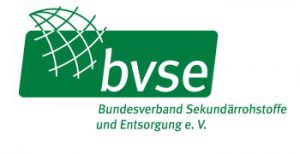 bvse kritisiert flächendeckende Schließungen kommunaler Wertstoffhöfe
bvse kritisiert flächendeckende Schließungen kommunaler Wertstoffhöfe
Mit großer Sorge sieht der bvse-Bundesverband Sekundärrohstoffe und Entsorgung, dass eine Vielzahl von kommunalen Wertstoffhöfen derzeit ganz geschlossen oder nur eingeschränkt geöffnet sind.
Der bvse kann die in manchen Teilen Deutschlands fast flächendeckenden Schließungen nicht nachvollziehen. Teilweise werde sogar die Abfallentsorgung der privaten Haushalte eingeschränkt.
Eric Rehbock, Hauptgeschäftsführerdes bvse: “Immer dort, wo es zu Störungen der Sammelinfrastruktur kommt, steigen die Abfallmengen, die illegal und zum Schaden von Natur und Umwelt abgelagert werden. Außerdem werden Wertstoffe, wie zum Beispiel Altpapier, nicht mehr oder nur noch stark verzögert in den Wertstoffkreislauf zurückgeführt.”

